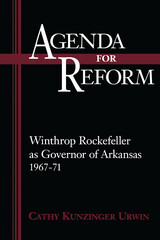


William P. “Will” Hobby Sr. and Oveta Culp Hobby were one of the most influential couples in Texas history. Both were major public figures, with Will serving as governor of Texas and Oveta as the first commander of the Women’s Army Corps and later as the second woman to serve in a presidential cabinet. Together, they built a pioneering media empire centered on the Houston Post and their broadcast properties, and they played a significant role in the transformation of Houston into the fourth largest city in the United States. Don Carleton’s dual biography details their personal and professional relationship—defined by a shared dedication to public service—and the important roles they each played in local, state, and national events throughout the twentieth century.
This deeply researched book not only details this historically significant partnership, but also explores the close relationships between the Hobbys and key figures in twentieth-century history, from Texas legends such as LBJ, Sam Rayburn, and Jesse Jones, to national icons, including the Roosevelts, President Eisenhower, and the Rockefellers. Carleton's chronicle reveals the undeniable impact of the Hobbys on journalistic and political history in the United States.


With a new foreword by New York's former governor, Mario Cuomo, this revised and updated edition of Memos to the Governor is a concise guidebook that takes the reader behind governmental fiscal gobbledygook to explain in clear, understandable prose the technical, economic, and political dynamics of budget making. At all levels of government, the budget has become the battleground for policymaking and politics. This book helps current and future public administrators untangle the knotty processes of budget preparation and implementation.
Dall W. Forsythe, who served as budget director under Governor Cuomo, outlines the budgeting process through a series of memos from a budget director to a newly elected governor—a format that helps readers with little or no background to understand complicated financial issues. He covers all of the steps of budget preparation, from strategy to execution, explaining technical vocabulary, and discussing key topics including baseline budgeting, revenue forecasting, and gap-closing options.
Forsythe brings fresh insights into such issues as the importance of a multiyear strategic budget plan, the impact of the business cycle on state budgets, the tactical problems of getting budgets adopted by legislatures, and, of course, the relationship between governor and budget officer. Memos to the Governor is a painless, practical introduction to budget preparation for students of and practitioners in public administration and public-sector financial management.

This revised and updated edition of Memos to the Governor is a concise and highly readable guidebook that explains in clear, understandable prose the technical, economic, and political dynamics of budget making. Updated with many new examples of budget quandaries from recent years, this book helps current and future public administrators untangle the knotty processes of budget preparation and implementation.
Authors Dall W. Forsythe and Donald J. Boyd outline the budgeting process through a series of memos from a budget director to a newly elected governor—a format that helps readers with little or no background understand complicated financial issues. They cover all of the steps of budget preparation, from strategy to execution, explaining technical vocabulary, and discussing key topics including baseline budgeting, revenue forecasting, and gap-closing options.
Forsythe and Boyd bring fresh insights into such issues as the importance of a multiyear strategic budget plan, the impact of the business cycle on state budgets, the tactical problems of getting budgets adopted by legislatures, and, of course, the relationship between governor and budget officer. Memos to the Governor is a painless, practical introduction to budget preparation for students of and practitioners in public administration and public-sector financial management.

Pedro Pino, or Lai-iu-ah-tsai-lu (his Zuni name) was for many years the most important Zuni political leader. He served during a period of tremendous change and challenges for his people. Born in 1788, captured by Navajos in his teens, he was sold into a New Mexican household, where he obtained his Spanish name. When he returned to Zuni, he spoke three languages and brought with him a wealth of knowledge regarding the world outside the pueblo. For decades he ably conducted Zuni foreign relations, defending the pueblo's sovereignty and lands, establishing trade relationships, interacting with foreigners-from prominent military and scientific expeditions to common emigrants-and documenting all in a remarkable archive. Steeped in Zuni traditions, he was known among other things for his diplomatic savvy, as a great warrior, for his oratory, and for his honesty and hospitality.
More than a biography, Richard Hart's work provides a history of Zuni during an especially significant period. Also the author of Zuni and the Courts: A Struggle for Sovereign
Land Rights and the co-author of A Zuni Atlas, Hart originally wrote the manuscript in 1979 after a decade of historical work for Zuni Pueblo. He then set it aside but continued to pursue research about and for Zuni. Its publication, at last, inscribes an important contribution to Pueblo history and biography and a testimonial to a remarkable Native American leader. In an afterword written for this publication, Hart discusses his original intentions in writing about Pedro Pino and Zuni and situates the biography in relation to current scholarship.
READERS
Browse our collection.
PUBLISHERS
See BiblioVault's publisher services.
STUDENT SERVICES
Files for college accessibility offices.
UChicago Accessibility Resources
home | accessibility | search | about | contact us
BiblioVault ® 2001 - 2024
The University of Chicago Press









